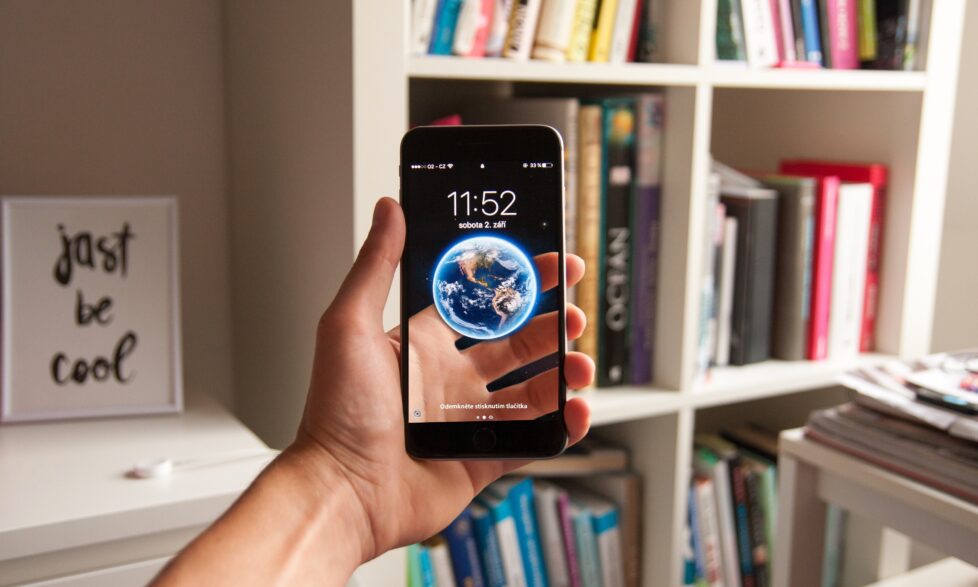Smartphones could help us achieve the SDGs but they need a sustainability upgrade
Keys, wallet…. smartphone? Over the past five years smartphones have become an integral part of our daily lives, and many of us couldn’t imagine life without one. As well as making communications a whole lot easier and faster, smartphones entertain us, help us navigate and travel, monitor our health, manage our finances or control energy use in our homes.
The ever-growing opportunities for smartphone and mobile technology could also enable social and economic progress globally and contribute to the achievement of the Sustainable Development Goals (SDGs) as the GSMA mobile industry impact report on the SDGs demonstrates.
For example, they can help to fight poverty and hunger by enhancing the livelihoods of small farmers. Mobile and smartphone applications can help farmers to monitor information on weather, pests, diseases or soil condition, allowing them to manage risk, make better land management decisions and improve efficiency. Applications can also provide farmers important access to finance or insurance.
Smartphones can also provide opportunities for better access to medical advice and healthcare in the form of virtual appointments in areas where people would normally need to travel long distances to receive expert medical advice.
Not-so-smart consumption and production
However, smartphones have severe social and environmental consequences – and with global use sky-rocketing these are only increasing. Deloitte predicts that 1.85 billion will be sold in 2023 – a 19 percent increase from 2018.
Diminishing natural resources and mountains of e-waste
Smartphones become bigger, faster and more powerful with every subsequent generation, meaning more natural resources are extracted to produce the components that enable smartphones to perform these increasingly complicated tasks.
What’s more, smartphones are relatively short-lived (consumers replace their phones every 21 months on average) and are often not easily repairable and infrequently recycled. This is creating a growing pile of electronic waste.
4G or not to 4G?
While innovations like 4G help more people access the benefits of the internet – and quicker – the carbon implications of internet infrastructure (eg data centres) are significant.
Some estimates state that if there is no significant improvement in the energy efficiency of communication technology, the sector as a whole could contribute more than 20% of global greenhouse gas emissions by 2030.
Conflict, corruption and chemicals
Smartphone production has also been associated with human rights issues. Like other electronic devices, they require sourcing and trading of precious metals and rare earth minerals. In politically unstable areas, this may support corruption and money laundering, finance armed groups and fuel forced labour and other human rights abuses.
Furthermore, poor working conditions in factories is unfortunately common. Harmful chemicals are often used in the production processes causing health risks, not to mention other labour-related concerns including work overload, low wages and long hours.
We need to transform together
So, what can we do?
Not much will change if we only attempt to fix one issue in this complex puzzle. Tackling these concerns requires joint action and collaboration from governments, industry, consumers, institutional buyers and public procurers.
Transform Together is a multi-stakeholder partnership created by Bioregional and partners to drive action for Sustainable Development Goal 12, Sustainable Consumption and Production. In 2016, we created the Sustainable Smartphones Working Group to try and identify a path forward.
So, what can we do? Not much will change if we only attempt to fix one issue in this complex puzzle. Tackling these concerns requires joint action and collaboration from governments, industry, consumers, institutional buyers and public procurers.
Our latest report outlines the key concerns of the smartphone lifecycle, collates the leading practice examples, and proposes practical recommendations for governments, industry and consumers to accelerate the transition towards more sustainable smartphones. Here are a few of the key actions we suggest:
Governments:
- Incentivise repairs of smartphones and other ICT products
- Ensure an open regulatory environment for repair, securing consumers’ rights to buy spare parts, use diagnostic tools, and access repair manuals.
Companies:
- Scale up efforts to use recycled materials in new phones including metals in smartphones to decrease the social and environmental impacts of extracting virgin materials.
Consumers:
- Get your old phone repaired
- Recycle those phones that have been sitting in the drawer for years
- Understand the environmental and social impacts of buying a new smartphone – and the best options out there.
Join the action
This report serves as a starting point and call to practical action. We invite governments, policymakers, industry, civil society organisations, researchers and consumers to work together and find ways to act on its findings. It will be submitted to policy processes such as the 2018 European Commission review on how smartphones could be included in the Ecodesign directive. A workshop is planned in Brussels in the end of June to discuss the practical actions coming out of this work. The findings will be also shared at the United Nations High Level Political Forum in New York in July 2018.
Let's make the smartphones industry more sustainable - together
Transform Together’s new report proposes practical recommendations for governments, industry and consumers to accelerate the transition towards more sustainable consumption and production for smartphones
Download PDF






